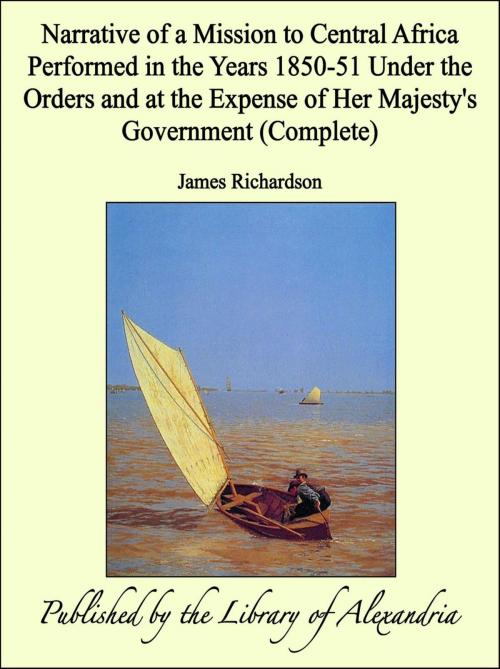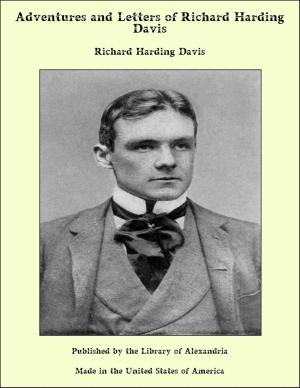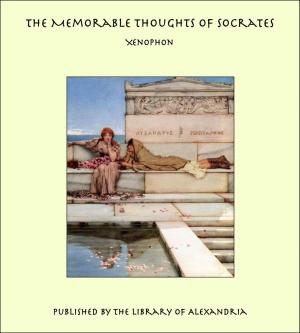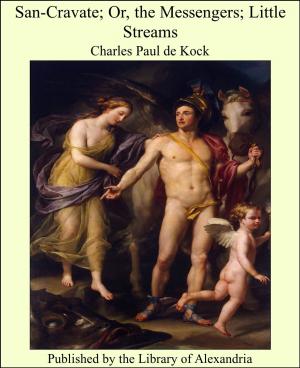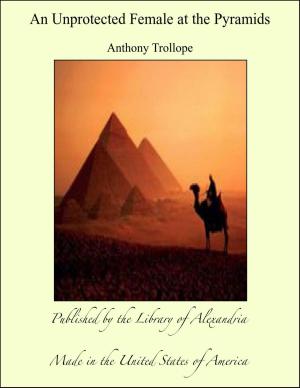Narrative of a Mission to Central Africa Performed in the Years 1850-51 Under the Orders and at the Expense of Her Majesty's Government (Complete)
Nonfiction, Religion & Spirituality, New Age, History, Fiction & Literature| Author: | James Richardson | ISBN: | 9781465562234 |
| Publisher: | Library of Alexandria | Publication: | July 29, 2009 |
| Imprint: | Library of Alexandria | Language: | English |
| Author: | James Richardson |
| ISBN: | 9781465562234 |
| Publisher: | Library of Alexandria |
| Publication: | July 29, 2009 |
| Imprint: | Library of Alexandria |
| Language: | English |
As will be seen, the Mission was accompanied by two German gentlemen, Drs. Barth and Overweg—the former, of whom I had the pleasure of meeting in Egypt, after his enterprising ride along the coast of Libya. They are still in Central Africa, pushing their excursions on all sides, from Bornou into unknown tracts; and the accounts they may publish on their return will be anxiously looked for. The great traverse of the Saharan desert, however, with all its vicissitudes[vii] and dangers, the physical aspect of that wonderful region, and the manners of the various tribes that inhabit it, will, in the present volume, be found to be fully described—not, it is true, with much attempt at literary ornament, but in the vivid though simple language in which a man sets down impressions which he has just received. I have endeavoured to remove all the faults which may be supposed to have arisen from haste or carelessness, and have necessarily re-written several passages, and passed a correcting pen over the whole manuscript. But I think I may say with confidence, that there is no observation or statement in the following pages which cannot be justified by a reference to the original journals and scattered memoranda. To me this simple record of daily occurrences seems highly interesting. It divides itself, naturally, into a succession of parts of unequal importance. First comes an account of the journey to Mourzuk, the capital of Fezzan, containing the traverse of the frightful Hamadah or plateau which separates that province from the regency of Tripoli. Then we have a residence at Mourzuk itself, Mr. Richardson being obliged to wait the arrival from Ghât of an[viii] escort of Tuarick chieftains, with whom he had partly made acquaintance during a former trip in the desert. This escort appeared after some delay; and the Mission proceeded across the Fezzan plains to the independent state of Ghât, through a very wild and picturesque country. At this point began, if not the most arduous, at any rate the most dangerous, and at the same time the most novel, part of the journey. Mr. Richardson had undertaken, on his way to Soudan Proper (his first destination), to pass by the hitherto unexplored kingdom of Aheer or Asben, situated towards the southern limits of the Sahara. The march of the Mission across the deserts that lie between Ghât and that territory was rendered exciting by continual reports of danger from pursuing freebooters of the Haghar and Azgher tribes; but the enemy were outstripped, and no actual attack took place until the first inhabited districts of Aheer were reached. Here some lawless tribes levied black-mail, on the caravan, which was then permitted to proceed, though in doubt and alarm, until it arrived under the long-expected protection of Sheikh En-Noor, one of the great chiefs of the Kailouee tribes, at his town, or rather encampment,[ix] of Tintalous. Mr. Richardson's residence at this place was long and tedious. He suffered, besides, from the extortionate disposition of the Sheikh or Sultan, who, however, after considerable exactions, became his friend. This Saharan character is brought out by a succession of amusing touches. But our traveller was impatient to proceed, and seems to have hailed with delight the announcement that the great Salt-Caravan, which annually transports the necessary condiment from Bilma viâ Aheer to the south, was about to start, and that the Sheikh and the Christians were to accompany it. Some further disappointments occurred, but at length the Mission proceeded to Damerghou, whence Drs. Barth and Overweg went, one to Maradee and the other to Kanou, whilst Mr. Richardson proceeded alone to Zinder, situated in the province of Damagram. Here he was well received by the Sarkee, or Governor, and he dilates with well-founded exultation on his escape from the insolent and rapacious Tuaricks. Sad sights, however, connected with the slave-trade, checked his delight. During his stay the Sarkee went out in person to hunt down the subjects of his own sovereign,[x] that he might pay his debts by selling them into captivity. After another considerable delay Mr. Richardson was enabled to start once more, and being obliged to change his original plan proceeded to Kuka, the capital of Bornou, by way of Minyo. Shortly after leaving Gurai, the chief town of that province, the unfortunate traveller found his strength to be gradually giving way. He had already previously complained of the heat and fatigue, but did not seem to have felt any great alarm. Now, however, the climate seems to have told upon him with sudden and fatal violence. His last moments are described in a letter from his fellow-traveller, Dr. Barth, who hastened to the spot with laudable energy as soon as he heard of the melancholy catastrophe that had taken place. Mr. Richardson died at Ungurutua, about six days' journey from Kuka, the capital of Bornou, on the 4th of March, 1851, eleven months after his departure from Tripoli. I have observed that the Mission, the first transactions of which are described in these volumes, is entitled to be called successful. Although the original promoter and director died just as he was on the point of reaching[xi] the termination of his journey, his enterprising companions, Drs. Barth and Overweg, seem to have carried on and developed admirably the plan at first laid down. If they be spared to return to Europe they will bring home, no doubt, geographical information so valuable that all Mr. Richardson's predictions will be found to be amply fulfilled. As it is, however, the object of our practical fellow-countryman may be said to have been accomplished. He did not lay so much stress on the accurate determination of latitude and longitude, of the heights of mountains and the courses of valleys, as on matters that come more nearly home to human sympathies. The abolition of the system of slavery—many affecting illustrations of which will be found in these volumes—seems to have engaged the chief of his attention. It was with this benevolent object that he originally turned his attention to Africa; and he had become convinced that the best means of effecting it was to encourage legitimate traffic between Europe and the great nurseries of slaves. Among other things, he wished to show the possibility of entering into treaties of amity and commerce with the most important states of Central Africa; and[xii] although these treaties may not turn out to be of great immediate utility, it is always worth while that future explorers should know, that on the borders of Lake Tchad there is a power which professes to be united with England in formal ties of friendship, and that the Sultan of Bornou has never shown any disposition to break his promises or secede from his engagements. As to the question, whether legitimate commerce can advantageously be carried on across the Sahara, and substituted for the frightful traffic in human beings, I do not consider that it is as yet decided; but Mr. Richardson's researches will throw great light on this interesting subject. I do not intend here to attempt an account of the services rendered by Mr. Richardson to the sciences of geography and ethnography during his useful career. At some future period, no doubt, this task will be performed; and it will not fail to be added, that he was always impelled by a higher motive than the mere satisfaction of curiosity or ambition. A profound conviction that something might be done towards ameliorating the condition of the African nations, if we were only better acquainted with[xiii] them, seems to have early possessed him. This it was that sustained and guided his footsteps; and all who knew him unite in testifying that he concealed beneath a pleasant, cheerful exterior, the character of a Christian gentleman, and an ardent crusader against the worst form of oppression which has ever been put in practice. The hope that the public will unite in this opinion must certainly assist in consoling his widow for the loss which she has sustained. Mrs. Richardson is alluded to in the narrative throughout. It is necessary, therefore, to say, that that lady remained in Tripoli until the news of her bereavement reached her, and that she then returned to England to promote the erection of this best monument to her husband's memory
As will be seen, the Mission was accompanied by two German gentlemen, Drs. Barth and Overweg—the former, of whom I had the pleasure of meeting in Egypt, after his enterprising ride along the coast of Libya. They are still in Central Africa, pushing their excursions on all sides, from Bornou into unknown tracts; and the accounts they may publish on their return will be anxiously looked for. The great traverse of the Saharan desert, however, with all its vicissitudes[vii] and dangers, the physical aspect of that wonderful region, and the manners of the various tribes that inhabit it, will, in the present volume, be found to be fully described—not, it is true, with much attempt at literary ornament, but in the vivid though simple language in which a man sets down impressions which he has just received. I have endeavoured to remove all the faults which may be supposed to have arisen from haste or carelessness, and have necessarily re-written several passages, and passed a correcting pen over the whole manuscript. But I think I may say with confidence, that there is no observation or statement in the following pages which cannot be justified by a reference to the original journals and scattered memoranda. To me this simple record of daily occurrences seems highly interesting. It divides itself, naturally, into a succession of parts of unequal importance. First comes an account of the journey to Mourzuk, the capital of Fezzan, containing the traverse of the frightful Hamadah or plateau which separates that province from the regency of Tripoli. Then we have a residence at Mourzuk itself, Mr. Richardson being obliged to wait the arrival from Ghât of an[viii] escort of Tuarick chieftains, with whom he had partly made acquaintance during a former trip in the desert. This escort appeared after some delay; and the Mission proceeded across the Fezzan plains to the independent state of Ghât, through a very wild and picturesque country. At this point began, if not the most arduous, at any rate the most dangerous, and at the same time the most novel, part of the journey. Mr. Richardson had undertaken, on his way to Soudan Proper (his first destination), to pass by the hitherto unexplored kingdom of Aheer or Asben, situated towards the southern limits of the Sahara. The march of the Mission across the deserts that lie between Ghât and that territory was rendered exciting by continual reports of danger from pursuing freebooters of the Haghar and Azgher tribes; but the enemy were outstripped, and no actual attack took place until the first inhabited districts of Aheer were reached. Here some lawless tribes levied black-mail, on the caravan, which was then permitted to proceed, though in doubt and alarm, until it arrived under the long-expected protection of Sheikh En-Noor, one of the great chiefs of the Kailouee tribes, at his town, or rather encampment,[ix] of Tintalous. Mr. Richardson's residence at this place was long and tedious. He suffered, besides, from the extortionate disposition of the Sheikh or Sultan, who, however, after considerable exactions, became his friend. This Saharan character is brought out by a succession of amusing touches. But our traveller was impatient to proceed, and seems to have hailed with delight the announcement that the great Salt-Caravan, which annually transports the necessary condiment from Bilma viâ Aheer to the south, was about to start, and that the Sheikh and the Christians were to accompany it. Some further disappointments occurred, but at length the Mission proceeded to Damerghou, whence Drs. Barth and Overweg went, one to Maradee and the other to Kanou, whilst Mr. Richardson proceeded alone to Zinder, situated in the province of Damagram. Here he was well received by the Sarkee, or Governor, and he dilates with well-founded exultation on his escape from the insolent and rapacious Tuaricks. Sad sights, however, connected with the slave-trade, checked his delight. During his stay the Sarkee went out in person to hunt down the subjects of his own sovereign,[x] that he might pay his debts by selling them into captivity. After another considerable delay Mr. Richardson was enabled to start once more, and being obliged to change his original plan proceeded to Kuka, the capital of Bornou, by way of Minyo. Shortly after leaving Gurai, the chief town of that province, the unfortunate traveller found his strength to be gradually giving way. He had already previously complained of the heat and fatigue, but did not seem to have felt any great alarm. Now, however, the climate seems to have told upon him with sudden and fatal violence. His last moments are described in a letter from his fellow-traveller, Dr. Barth, who hastened to the spot with laudable energy as soon as he heard of the melancholy catastrophe that had taken place. Mr. Richardson died at Ungurutua, about six days' journey from Kuka, the capital of Bornou, on the 4th of March, 1851, eleven months after his departure from Tripoli. I have observed that the Mission, the first transactions of which are described in these volumes, is entitled to be called successful. Although the original promoter and director died just as he was on the point of reaching[xi] the termination of his journey, his enterprising companions, Drs. Barth and Overweg, seem to have carried on and developed admirably the plan at first laid down. If they be spared to return to Europe they will bring home, no doubt, geographical information so valuable that all Mr. Richardson's predictions will be found to be amply fulfilled. As it is, however, the object of our practical fellow-countryman may be said to have been accomplished. He did not lay so much stress on the accurate determination of latitude and longitude, of the heights of mountains and the courses of valleys, as on matters that come more nearly home to human sympathies. The abolition of the system of slavery—many affecting illustrations of which will be found in these volumes—seems to have engaged the chief of his attention. It was with this benevolent object that he originally turned his attention to Africa; and he had become convinced that the best means of effecting it was to encourage legitimate traffic between Europe and the great nurseries of slaves. Among other things, he wished to show the possibility of entering into treaties of amity and commerce with the most important states of Central Africa; and[xii] although these treaties may not turn out to be of great immediate utility, it is always worth while that future explorers should know, that on the borders of Lake Tchad there is a power which professes to be united with England in formal ties of friendship, and that the Sultan of Bornou has never shown any disposition to break his promises or secede from his engagements. As to the question, whether legitimate commerce can advantageously be carried on across the Sahara, and substituted for the frightful traffic in human beings, I do not consider that it is as yet decided; but Mr. Richardson's researches will throw great light on this interesting subject. I do not intend here to attempt an account of the services rendered by Mr. Richardson to the sciences of geography and ethnography during his useful career. At some future period, no doubt, this task will be performed; and it will not fail to be added, that he was always impelled by a higher motive than the mere satisfaction of curiosity or ambition. A profound conviction that something might be done towards ameliorating the condition of the African nations, if we were only better acquainted with[xiii] them, seems to have early possessed him. This it was that sustained and guided his footsteps; and all who knew him unite in testifying that he concealed beneath a pleasant, cheerful exterior, the character of a Christian gentleman, and an ardent crusader against the worst form of oppression which has ever been put in practice. The hope that the public will unite in this opinion must certainly assist in consoling his widow for the loss which she has sustained. Mrs. Richardson is alluded to in the narrative throughout. It is necessary, therefore, to say, that that lady remained in Tripoli until the news of her bereavement reached her, and that she then returned to England to promote the erection of this best monument to her husband's memory
